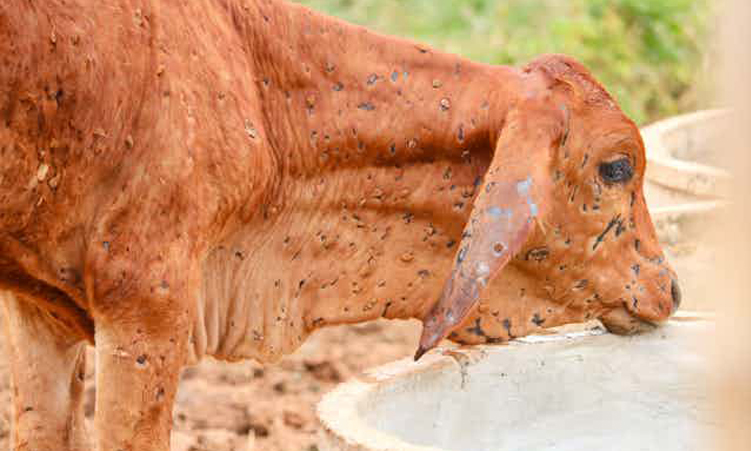THE High Court trial of the four men being prosecuted in connection with the Kareeboomvloer farm massacre in early March 2005 is set to reach a potential turning point for two of the men tomorrow.
A ruling expected to be given by Judge President Petrus Damaseb tomorrow morning will be giving an answer to this question: Will Justus Christiaan (‘Shorty’) Erasmus (30), son of two of the eight victims of the Kareeboomvloer farm massacre, and Rehoboth area resident Stoney Neidel (31) remain in the dock with brothers Sylvester and Gavin Beukes for the rest of the brothers’ trial, and if so, what charges will they continue to face? Defence lawyers Petrie Theron, representing Erasmus, and Boris Isaacks, representing Neidel, on Friday argued before Judge President Damaseb that the court should discharge Erasmus and Neidel now that the prosecution has closed its case against the four accused men. Deputy Prosecutor General Antonia Verhoef opposed their application, and argued that the prosecution had presented sufficient evidence against both Erasmus and Neidel to at least require them to be put on their defence in the trial.Gavin Beukes (27), whose defence lawyer, Titus Mbaeva, indicated at the close of the State’s case on June 28 that he would also be asking for his discharge, did not proceed with his intended application on Friday.The four men are being prosecuted on 15 charges, including eight counts of murder, in connection with the murder of eight people at farm Kareeboomvloer between Rehoboth and Kalkrand between March 4 and 5 2005.The State is alleging that the killings at the farm were the result of a plan by Erasmus to get Sylvester Beukes (23) to murder his parents.Theron argued on Friday that the court is confronted with two versions from Sylvester Beukes that are in direct conflict with each other.Beukes at first claimed that he had carried out the killings at the farm out of revenge against Erasmus’s father, Justus Christiaan Erasmus (Snr), who had previously employed him but had also laid a stock theft charge against him in September 2004.Eight days after his arrest, though, Beukes made a statement to the Police in which he claimed that ‘Shorty’ Erasmus had actually asked him to kill Erasmus’s parents.Beukes had five previous opportunities after his arrest to relate this version to the Police, but never mentioned these claims at that stage, Theron pointed out.He argued that the State had not done enough to prove the claims that the murders were the result of a contract killing initiated by Erasmus, with the result that Erasmus should be discharged at this stage of the trial.Neidel was drawn into the matter when a large hoard of items stolen from the farm was found at farm Areb west of Rehoboth, where he was farming, and also at his house at Rehoboth.These items had been left at premises under Neidel’s control by the two Beukes brothers.Isaacks argued that there was no evidence to show that by the time the stolen loot was left with him Neidel knew that crimes or murder, housebreaking, robbery and arson had been committed at Kareeboomvloer, where the items left with him came from.He said the evidence now before the court also does not support an inference that Neidel and the Beukeses had a common purpose to commit the crimes.Verhoef argued the opposite.The law is that if at this stage of a trial an inference that an accused is innocent can be drawn from the evidence, but an inference that the accused is guilty could also be drawn, the accused must be put on his defence, she said.She also argued that the court cannot at this stage exclude the possibility that the motivation for the murder was both the alleged contract killing set in motion by Erasmus and a grudge that Sylvester Beukes held against Erasmus’s father.The final determination on Beukes’s credibility is something that should be made at the end of the trial only, and not at this stage of the proceedings, she added.Neidel’s state of mind at the stage that the loot was loaded off at farm Areb – and whether he knew or suspected that these were the proceeds of a crime – is something that only Neidel can testify about, meaning that he too should be put on his defence, Verhoef also argued.The trial started on March 1 last year with all four accused pleading not guilty to all charges.Erasmus and Neidel remain free on bail, while the Beukes brothers have been in custody since their arrest on March 6 2005.Deputy Prosecutor General Antonia Verhoef opposed their application, and argued that the prosecution had presented sufficient evidence against both Erasmus and Neidel to at least require them to be put on their defence in the trial.Gavin Beukes (27), whose defence lawyer, Titus Mbaeva, indicated at the close of the State’s case on June 28 that he would also be asking for his discharge, did not proceed with his intended application on Friday.The four men are being prosecuted on 15 charges, including eight counts of murder, in connection with the murder of eight people at farm Kareeboomvloer between Rehoboth and Kalkrand between March 4 and 5 2005.The State is alleging that the killings at the farm were the result of a plan by Erasmus to get Sylvester Beukes (23) to murder his parents.Theron argued on Friday that the court is confronted with two versions from Sylvester Beukes that are in direct conflict with each other.Beukes at first claimed that he had carried out the killings at the farm out of revenge against Erasmus’s father, Justus Christiaan Erasmus (Snr), who had previously employed him but had also laid a stock theft charge against him in September 2004.Eight days after his arrest, though, Beukes made a statement to the Police in which he claimed that ‘Shorty’ Erasmus had actually asked him to kill Erasmus’s parents.Beukes had five previous opportunities after his arrest to relate this version to the Police, but never mentioned these claims at that stage, Theron pointed out.He argued that the State had not done enough to prove the claims that the murders were the result of a contract killing initiated by Erasmus, with the result that Erasmus should be discharged at this stage of the trial.Neidel was drawn into the matter when a large hoard of items stolen from the farm was found at farm Areb west of Rehoboth, where he was farming, and also at his house at Rehoboth.These items had been left at premises under Neidel’s control by the two Beukes brothers.Isaacks argued that there was no evidence to show that by the time the stolen loot was left with him Neidel knew that crimes or murder, housebreaking, robbery and arson had been committed at Kareeboomvloer, where the items left with him came from.He said the evidence now before the court also does not support an inference that Neidel and the Beukeses had a common purpose to commit the crimes.Verhoef argued the opposite.The law is that if at this stage of a trial an inference that an accused is innocent can be drawn from the evidence, but an inference that the accused is guilty could also be drawn, the accused must be put on his defence, she said.She also argued that the court cannot at this stage exclude the possibility that the motivation for the murder was both the alleged contract killing set in motion by Erasmus and a grudge that Sylvester Beukes held against Erasmus’s father.The final determination on Beukes’s credibility is something that should be made at the end of the trial only, and not at this stage of the proceedings, she added.Neidel’s state of mind at the stage that the loot was loaded off at farm Areb – and whether he knew or suspected that these were the proceeds of a crime – is something that only Neidel can testify about, meaning that he too should be put on his defence, Verhoef also argued.The trial started on March 1 last year with all four accused pleading not guilty to all charges.Erasmus and Neidel remain free on bail, while the Beukes brothers have been in custody since their arrest on March 6 2005.
Stay informed with The Namibian – your source for credible journalism. Get in-depth reporting and opinions for
only N$85 a month. Invest in journalism, invest in democracy –
Subscribe Now!










